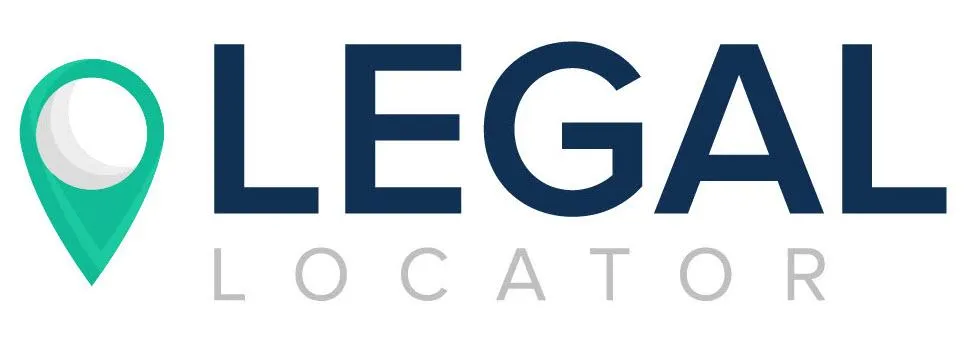Pay-Per-Lead vs. Pay-Per-Click: What's the Best Option for My Law Firm?
Pay-Per-Lead vs. Pay-Per-Click: What's the Best Option for My Law Firm?
You want to grow your firm. But, with a limited development budget, how do you choose between SEO, PPC, PPL, or any of the other alphabet-soup online marketing options?
In a moment, we're going to look at pay-per-lead systems in relation to pay-per-click advertising. First, though, you should know that not all lead generation companies are alike.
At Legal Locator, we pride ourselves on offering qualified, exclusive, real-time leads. The point is to give you what you need to connect with clients that truly need your services. Our system is backed by a massive, nationwide marketing network, and we can help you customize it to your exact needs. Please feel free to contact us for a consultation once you're ready to get started.
Now that that's out of the way, here's what we'll talk about in the rest of the article:

● What's PPC — What's PPL?
● What's the Main Difference Between PPC and PPL?
● When Is Buying Leads Worth It?
● Which Types of Firms Need Leads?
● Can You Combine PPC and PPL?
● Is There Risk in Buying Leads?
● What if You Get Too Busy To Handle New Clients?
What's PPC — What's PPL?
Pay-per-click and pay-per-lead are both common online marketing and advertising techniques for law offices. They're popular across professional services, in fact. Apart from that, the two approaches are very different.
PPC is more or less the standard for paid advertising online. You write up a page on your website, create an ad, and set up a campaign. This is relatively time- and labor-intensive. First of all, the campaign has to be configured and budgeted correctly — law firm PPC is just about the most expensive advertising online. Furthermore, competitive PPC landing pages need to:
● Match search strings
● Be engaging, with nice layouts, images, and writing
● Be informative
● Contain contact links and calls to action
PPL involves a lot less work — at least on your end. You just set up your territory, your practice area, and your budget. Legal Locator is able to offer quality leads on a pay-per-connection basis (i.e. without the effort of your setting up your own campaigns) because we already have highly effective advertising and marketing campaigns running.
What's the Main Difference Between PPC and PPL?
We'll keep this section short and sweet. The main difference between PPC and PPL is what you're paying for:
● PPC: You pay when people visit your website or call you by clicking on your advertisement.
● PPL: You pay qualified leads, which include information about each potential client.
In other words, you pay for general interest with PPC and qualified interest with PPL.
When Is Buying Leads Worth It?
When is buying leads worth the money? We would say that, if you have the budget and your caseload is not overwhelming, it's worth it to have leads coming in.
That said, every business is different. We're happy to sit down and talk to you about your unique goals, including which types of cases you're targeting, your long-term plan for your business, and your predictions for your month-to-month demand. We don't force you into a long-term contract, so you can be flexible enough to give your clients the attention they deserve.
Which Types of Firms Need Leads?
Law is competitive. If your firm operates in any popular area of practice — family law, criminal defense, estate planning, or personal injury, for example — you could likely benefit from buying leads online. You're even more likely to need pay-per-lead if you're in one of the most competitive markets, such as divorce, workers' comp, or car-accident injuries.
PPL is even good for firms that traditionally have survived off of existing contacts or word of mouth. In fact, if you're even considering PPC online ads, you probably should start with PPL. PPL is generally more direct — you get leads forwarded to you in real time rather than needing people to see your ad, go to your website, and contact you.
Can You Combine PPC and PPL?
Can you combine PPC and PPL — the short answer is "yes" here. The long answer is that you can combine all types of marketing and advertising. The trick would be finding a balance that helps you build the future you want for your firm.
As mentioned above, paid online advertising for attorneys is monumentally expensive. An expert in marketing can whittle down the costs by targeting campaigns correctly, but the fact remains that the legal profession has the most expensive keywords. You usually have to hire a pro to run a profitable PPC campaign for a law firm.
Pay-per-lead is nice because you don't have to advertise. You just tell us which types of cases you're looking for, and we handle the advertising part. It also allows you to cover more ground for less money than a DIY ad approach.
With that in mind, many firms with a sizable business-development budget combine PPC and PPL by focusing their advertising campaigns. For example, you could use ads to
● narrow down to ultra-local geographic focuses,
● publicize special events, or
● target specific types of cases.
This type of specificity lowers the cost of your ads. While the ads are running, paid leads still maintain a steady flow of potential clients from a wider area of focus. It's the best of both worlds.
Is There Risk in Buying Leads?
Legal Locator takes on all of the risk of lead capture. You just use our state-of-the-art software to act on the information we send along.
We can't promise that every lead we send will convert to a retained client. However, we qualify each lead, send it immediately, and match it with your specified practice area. We're proud of the quality of contacts we offer — and we're proud to be helping law firms grow, risk-free, across the country.
What if You Get Too Busy To Handle New Clients?
We've seen some new clients wary of lead generation services, particularly with regards to long-term contracts. We put the priority on your success rather than trying to use you for an uninterrupted revenue stream.
We understand that the profession doesn't run like clockwork. Some practice areas are seasonal. Some firms have bursts of clients. Legal Locator is here for precisely that reason: to help you develop a more predictable, more manageable caseload. Our job is to keep leads coming as you need them — so you can plan effectively and grow your business.
Please contact Legal Locator today. We'll discuss your goals and how we can help you achieve them.









